 Abraham Lincoln
If given the truth, the people can be depended upon to meet any national crisis...
Abraham Lincoln
If given the truth, the people can be depended upon to meet any national crisis...
 Guildford news...
for Guildford people, brought to you by Guildford reporters - Guildford's own news service
Guildford news...
for Guildford people, brought to you by Guildford reporters - Guildford's own news service
Stage Dragon Interview: Richard Cartmale of The Opera Foundry
Published on: 20 Jun, 2013
Updated on: 20 Jun, 2013
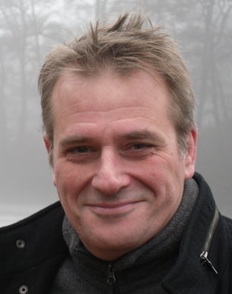
Richard Cartmale
A Stage Dragon interview with conductor Richard Cartmale of Opera Foundry (conductor, composer, singing coach, musical director, arranger, vocal consultant, orchestrator, percussionist, pianist and tenor) who is soon to appear at the Electric Theatre.
Your career background is varied – which would you say was the area of most most interest for you personally?
I studied conducting from an instrumentalist’s background before having so much as one singing lesson. I think that being the architect of a performance – both rehearsing and awakening performers to the score, and sharing that with an audience is the key, so – much as I have also enjoyed playing instruments or singing in the past – I would have to say that visualising and directing music (usually as a conductor) is what has always driven me. I most love working with orchestras and solo singers – so opera is my ultimate natural medium.
You’re working with the next generation of opera singers as well as local enthusiasts, how do you inspire these young artists and motivate the more established amateurs? Any particular methods employed?
That’s easy. I draw on two things: My practical experience and knowledge of this art-form – and my passion for it. The former is a matter of record and obviously gives some authority, but the latter is very important, because it is also something I meet in both the groups you identify. I have worked alongside some established professionals who do ‘the necessary, and no more’ – which is not a criticism, because it has it’s place and a conductor can always ask for more, if they feel it is required. But for anyone trying to come to grips with the musical icons of the opera repertoire as a soloist, they need enough passion to take risks.
I try not to stand on the toes of anybody’s singing teacher, but I have done enough work as a professional singer in opera houses to know what risks I can ask people to take, without damaging their vocal health or confidence. Singers have to be encouraged to ‘open themselves up’ physically, intellectually and emotionally or they will perform and produce the voice in a ‘risk-averse’ way that leads to blandness and mediocrity.
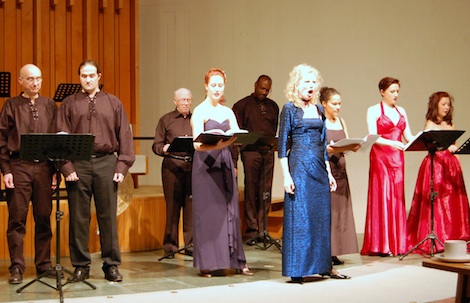
Opera Foundry Company
Much has been said about popularizing opera and making it accessible to modern audiences, how is that reflected in your planning for the year ahead, and what (if anything) would you say is the prime attraction to younger and/or modern audiences?
Opera tends to suffer when there is too much gimmickry in the marketing. It has to be kept fresh and vital, and has fashion phases, like any medium, but is essentially, like fine art, there to be discovered in people’s own time. What I would always seek to do is make performances real, sincere and impactive, as well as conserving that which makes a piece special enough to perform in the first place.
Most people who have never heard ‘real’ opera singing in the flesh (let alone in it’s theatrical context) experience a subtle, yet sometimes quite primal, thrill when they first do so. I am now being helped by an excellent management team at Opera Foundry, and we are looking at ways for more people (especially the ‘Opera Virgins’) to experience this in the coming year.
Tell us something about your plans for Opera Foundry – this year and next – what events/production are you most looking forward to presenting?
With the growth of the ensemble’s identity, as well as the collective and individual attainments made thus far, there is more and more of a view that we should mount some fully-staged opera productions. This would be a very exciting and logical development for us, but is going to depend on finding significant sponsorship. We have assembled a core of expertise and can now look at bringing in interested parties for the mutual benefits in staging a larger-scale event.
The other project which will require some financial planning is to develop some gala-style concerts working with an orchestra as well. This is the sort of thing we could also do for the bigger-budget corporate entertainment event. We already have the singers and I regularly work with a pool of excellent freelance orchestral musicians, both in the theatre and the recording studio.
Would you ever venture into really modern, contemporary, repertoire?
I am assuming you mean ‘contemporary’ in the sense of popular culture, rather than recently composed serious music. Regarding the latter: We are already moving in that direction – but as a CPD [continuing professional development] resource, we will always retain some links with the vocal schooling of the 17th-early 20th century, and the music written within it.
Personally, as a freelance musician, I have to be versatile – last year I conducted a big Rodgers and Hammerstein production with a 25-piece orchestra, and went straight from that to MD another production from the piano with a seven-piece rock band. I would see no point in Opera Foundry going down that road, but we could probably do something of a classic musicals gala – something that requires the vocal tradition we have trained for – like Rodgers and Hammerstein or Cole Porter – maybe a spectacular along the lines of a John Wilson/MGM Orchestra concert?
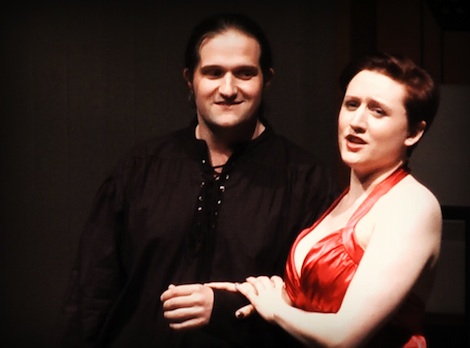
Matt Connolly and Amy Worsfold
Could you suggest three things that young singers should know before coming to see you as a coach or turning up to audition?
1 – They should know something about what they profess to be interested in. Research is the proof of that. 2 – They should be able to hold a tune consistently. 3 – They should have listened to, and read, a lot of the music they aspire to sing.
What is your favourite opera?
Difficult! – I could name 20 or 30 and still feel I was missing out someone important (yes – they are like friends!) but – if pushed – Tosca? Boheme? Butterfly? Aida? Figaro? Don Giovanni? Grimes? – and many others – most of those I’ve mentioned will be referenced in the forthcoming concert. I could say ‘La Forza del Destino’ because I met my wife when working on it, or I could say ‘Cavalleria rusticana’ because I have done just about everything I could in productions of that piece – in chronological order, I have played in the orchestra, sung tenor chorus, sung the principal tenor role, played as production pianist and conducted it in two different countries.
Can you give us your most interesting or amusing anecdote or story?
I once went to rehearse (as Don Jose) for a new production of Carmen, with a replacement for the originally cast Carmen. We started to walk the scene and I delivered the appropriate cue-line of spoken dialogue to the new mezzo, expecting her line: “I’m from the North, too!”. It came, but in the broadest Burnley accent I have ever heard! – and no… that was how she always spoke! I’m afraid I did actually roll on the floor, laughing, where I was joined by the director.
What was the reasoning behind the choice of work for your upcoming production of the Deadly Sins?
We wanted to emphasize that much of the operatic canon deals with dark emotional landscapes in the human psyche. It’s all too easy to look at the 19C plots and settings as charmingly remote and picturesque. This is typical of the way many amateur operatic societies and choral societies tend to perceive them. The reality is that one is conveying powerful emotions in extraordinary dramatic circumstances, so we thought the idea of looking at the human flaws and weaknesses of each scene would be more interesting. So we have scenes that effectively meditate on Murder, Envy, Lust, Greed and so on.
Is there anything special that we should look out for in this upcoming production?
We are semi-staging our opera scenes for the first time. The Electric Theatre is a wonderful place for this, but don’t lose sight of the fact that some very popular pieces will still be heard – such as the complete ‘Pearl Fishers Duet’, Musetta’s Waltz Song ‘Quando me’n vò soletta per la via’, and the sextet from ‘Lucia di Lammermoor’. We have some very exciting singers performing here – I could give names – but like the operas, I’d end up leaving someone out. Come to the concert and follow me or Opera Foundry on twitter.

"Found any?" - "Nope, it all looks green to me!" (See Opinion: The Future is Congested, the Future is Grey)
www.abbotshospital.org/news/">
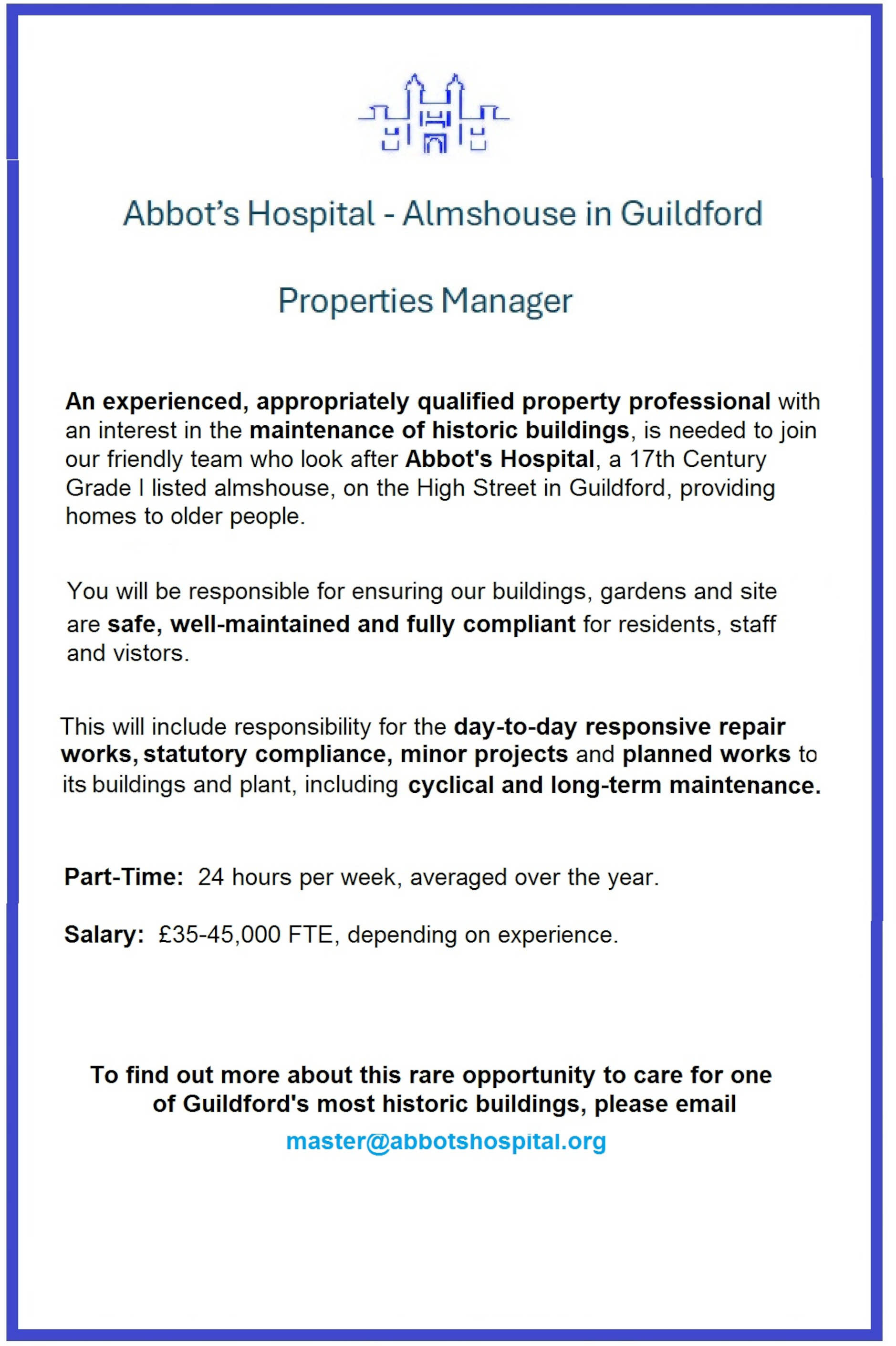
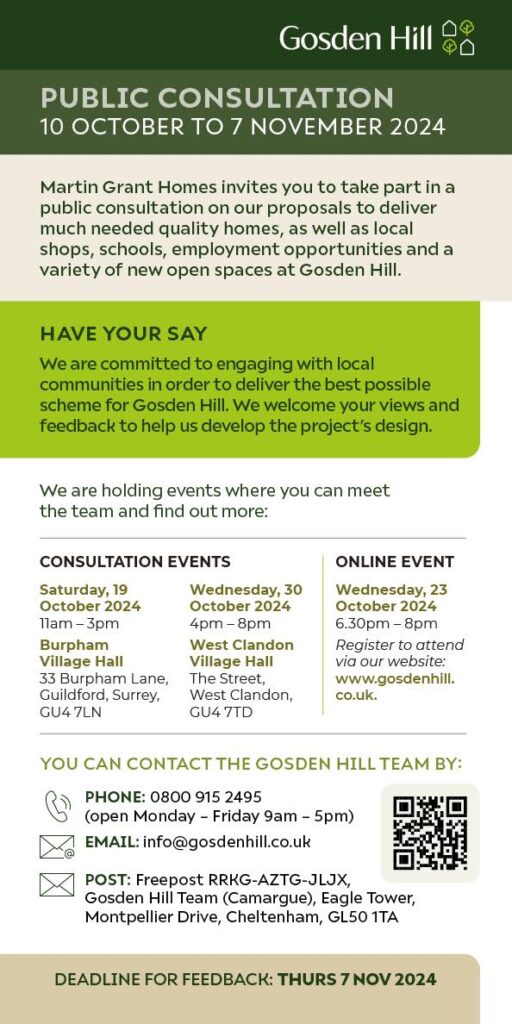

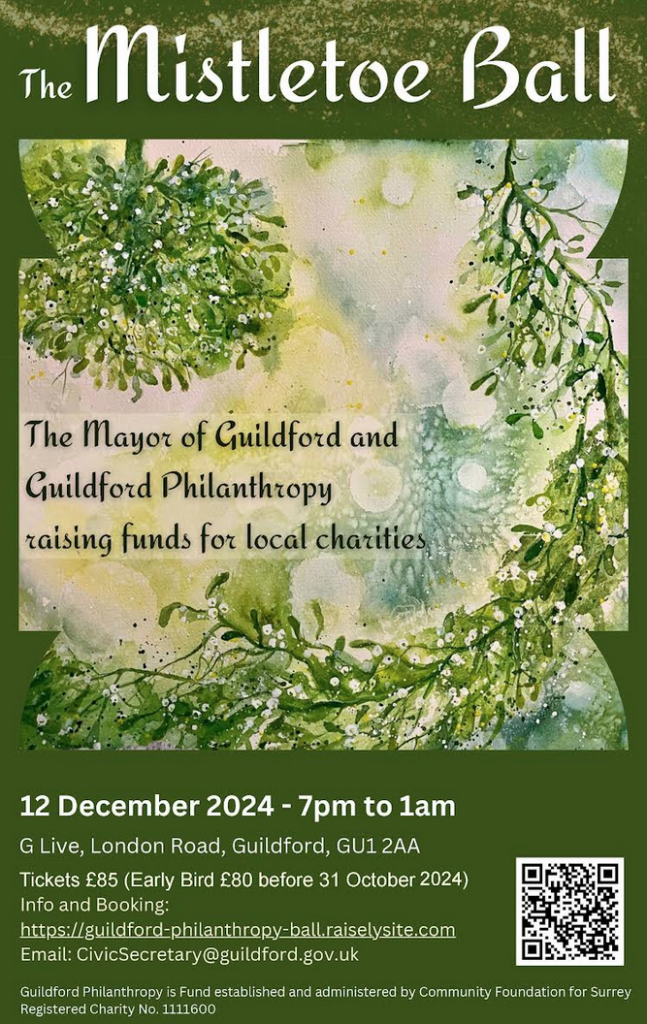

Recent Articles
- Latest Evidence in Sara Sharif Trial
- Ash’s New Road Bridge Is Named – and November 23rd Is Opening Day
- Class A in Underwear Leads to Jail Sentence
- Historical Almshouse Charity Celebrates Guildford in Bloom Victory
- Notice: Shalford Renewable Showcase – November 16
- Firework Fiesta: Guildford Lions Club Announces Extra Attractions
- Come and Meet the Flower Fairies at Watts Gallery
- Updated: Royal Mail Public Counter in Woodbridge Meadows to Close, Says Staff Member
- Letter: New Developments Should Benefit Local People
- Open Letter to Jeremy Hunt, MP: Ash’s Healthcare Concerns


Search in Site
Media Gallery
Dragon Interview: Local Artist Leaves Her Mark At One of England’s Most Historic Buildings
January 21, 2023 / No Comment / Read MoreDragon Interview: Lib Dem Planning Chair: ‘Current Policy Doesn’t Work for Local People’
January 19, 2023 / No Comment / Read MoreA3 Tunnel in Guildford ‘Necessary’ for New Homes, Says Guildford’s MP
January 10, 2023 / No Comment / Read More‘Madness’ for London Road Scheme to Go Ahead Against ‘Huge Opposition’, Says SCC Leader
January 6, 2023 / No Comment / Read MoreCouncillor’s Son Starts Campaign for More Consultation on North Street Plan
December 30, 2022 / No Comment / Read MoreCounty Council Climbs Down Over London Road Works – Further ‘Engagement’ Period Announced
December 14, 2022 / No Comment / Read MoreDragon Interview: GBC Reaction to the Government’s Expected Decision to Relax Housing Targets
December 7, 2022 / No Comment / Read MoreHow Can Our Town Centre Businesses Recover? Watch the Shop Front Debate
May 18, 2020 / No Comment / Read More






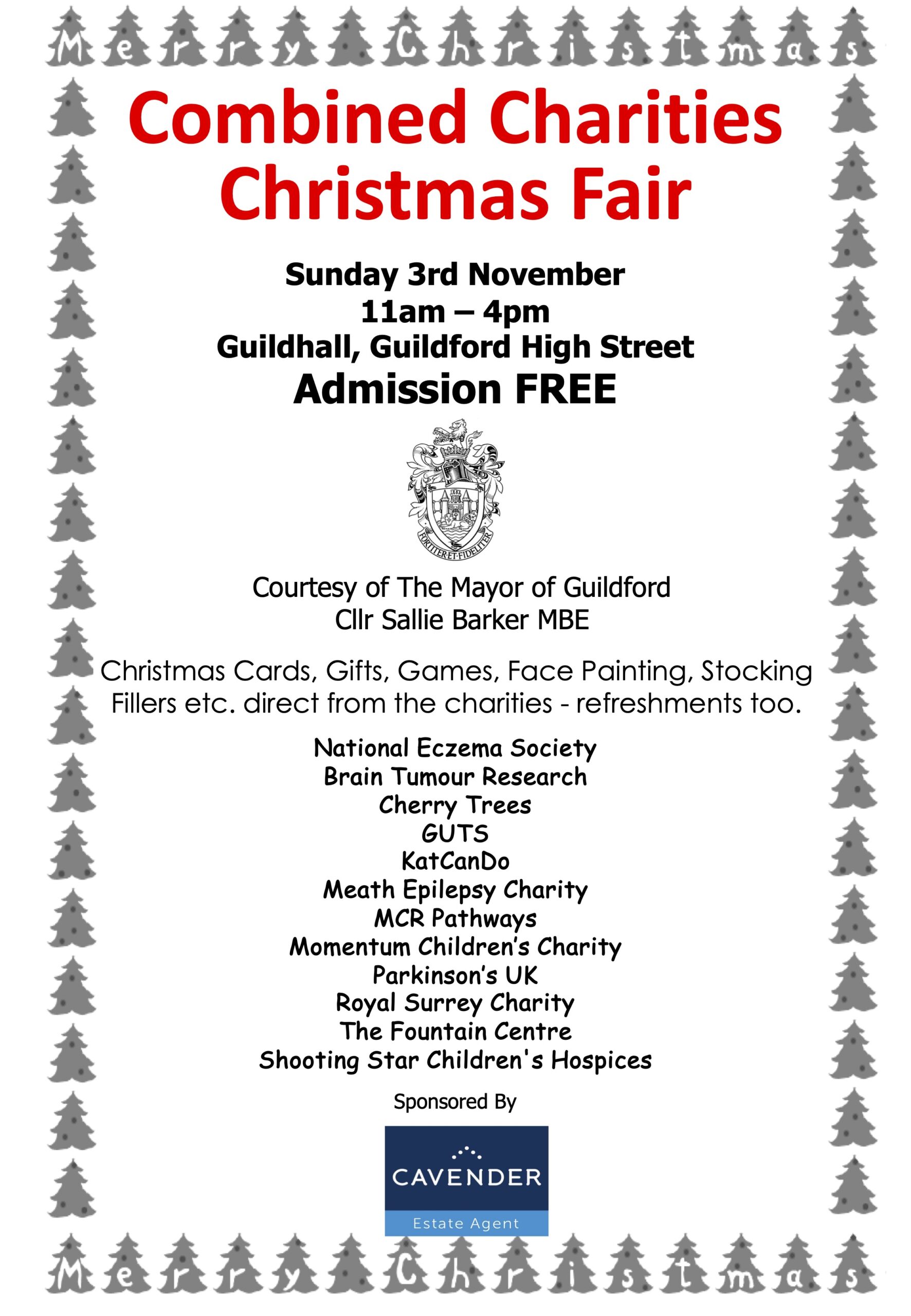
Recent Comments